Latest questions:
Trending questions:
Hot questions:
Does certification matter?
5 answers
If you look in Theme 8, David Cottrell posted the results of a survey from the ICF which said that between 74% and 78% of respondents thought clients would prefer certification in the future. On the other hand, that's a survey from an organisation with a vested interest. When I last checked, ICF had something like 25,000 certified coaches worldwide. The industry is way bigger than that, which would say that a lot of clients currently aren't bothered about certification. I am certified, but I am wondering whether to continue. Many of my clients don't regard it as necessary - coaching is a very specific skillset, and they often want me to blend it with other things. Also, the criteria for continuing start to feel like a club, where the activities required to stay certified become a small industry in themselves. I do have supervision, and do professional development, but not always in ways that meet the ICF requirements. My past experience as a client buying coaches, and other related services, says that certifications are no guarantee. I've seen good coaches who have no certification, and poor ones who do. To fix that, at a company where I needed 40+ coaches worldwide, we ran assessment centres. It freaked out some of the applicants, but it worked, and highlighted how poor CVs and certifications were as predictors of capability.

67 months ago
Any kind of certification (including college and graduate school for that matter), "certifies" that the person with it has assimilated a body of information. To make someone good at the vocation they have chosen they need 3 things
- knowledge (this is what a certification gives you)
- experience or use of the knowledge (there is no substitute for having tried what works in various situations)
- interest or passion for the activity
It's because you need all three of these that you often see job descriptions ask for a credential or equivalent experience
I'll add regardless of the expertise, some people simply cannot lead and coach. You can be certified in a topic, which can mean various levels of theoretical knowledge depending on the certification program. None of which equates to skills, talent, passion or experience. But even with all that some experts are horrible when it comes to guiding others, providing leadership, coaching and mentoring and project management. All of those are soft skills that require both practical experience and a certain amount of EI (Emotional Intelligence).
Sometimes people mistake a technical talent or skill that demonstrates strong knowledge and ability with an ability to lead others and often it turns out some people are better doers than leaders, coaches or mentors.
Competence in any profession requires both knowledge and experience. I am a PMP (Project Management Professional) and a fellow certificant has observed that passing the exam only demonstrates the mastery of a given body of knowledge at a particular point in time, not actual competence. To maintain my accreditation, I am required to fulfill education and practical requirements every three years.
I would certainly be more impressed by a certification with a practical component than one that merely involved passing a test. Certifications requiring continuing education or even periodic re-certification are probably more meaningful. Commercial pilots are required to perform on bi-annual check rides and doctors are required to acquire continuing education credits in order to maintain their licenses. These are good models for other certifications.

67 months ago





